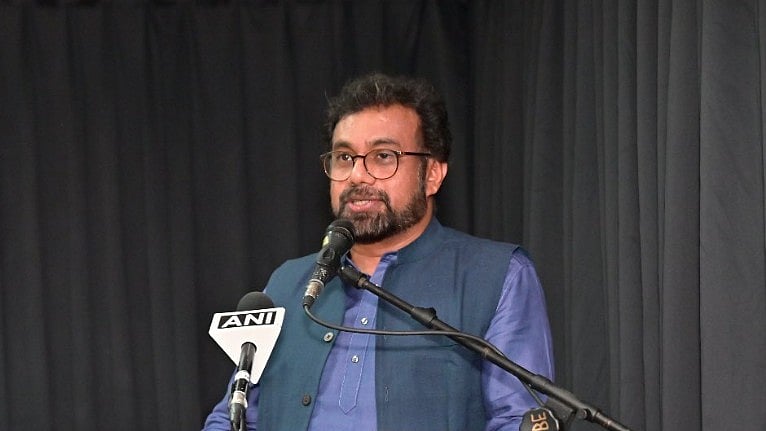
CPI(M) MP John Brittas
Credit: X/@JohnBrittas
New Delhi: CPI(M) MP John Brittas on Wednesday warned that the government's move to hand over the management and hosting of official email service, including that of Parliament, to Zoho Corporation poses “serious risks” to confidentiality and public interest, as he objected to “relegating” the National Informatics Centre (NIC) to a “minor role”.
In a letter to Vice President C P Radhakrishnan, he also flagged the “ideological proximity” of the private entity’s leadership with the Modi government, claiming that Zoho promoter Sridhar Vembu “never desisted” from supporting the government on issues like the role of Hindi, removal of the word ‘socialism’ from the Constitution among others.
Brittas wanted the Chairman to direct the government to make a “full and transparent disclosure” of the process by which Zoho Corporation was given the mandate. He wanted specific assurances and mechanisms from the government, guaranteeing the confidentiality of Parliamentary communications and safeguarding legislative independence.
“While NIC continues to set overarching policy under the Government Email Policy 2024, Zoho is now given the responsibility for the operational backend – including authentication through its 'OneAuth' application – marking the first time that such a core government email service has been placed under private management,” he said.
Claiming that the move poses “serious risks to confidentiality and public interest”, he claimed that it is “reliably learnt” that around 50 lakh government email inboxes will be managed by Zoho.
“Such restructuring inevitably raises concerns about the independence, confidentiality and perceived impartiality of Parliamentary communications...all official communications and transactions of MPs are routed through this infrastructure operated and authenticated by a private corporate entity. Such an arrangement, needless to say, carries profound implications,” Brittas warned.
For decades, he said, the NIC has acted as the custodian of the government’s internal communication networks and email services, ensuring functionality, sovereignty of data and institutional integrity. He said “no reasonable evidence” has been shared so far as to why the NIC is unable to manage on its own backend operations of this core communication infrastructure.
He said the migration of this responsibility to a private operator, however capable, transposes a core element of the State and Parliamentary control into corporate hands.
“The government seems to be justifying this transition on grounds of modernisation, scalability, and cyber security. But the larger question remains unanswered – can the custodianship of the government’s communication systems, including those of Parliament itself, be routed through a private entity without undermining institutional independence?” he said.
“While public service and private enterprise can and often do coexist without impropriety, the combination of (a) a private firm operating the operational backend for a government email system (including Parliament’s); (b) NIC’s adoption of that firm’s OneAuth-based authentication for gov.in accounts and (c) the founder’s public proximity to ruling institutions, creates a fertile ground for both the perception and the risk of partisan influence over communications that must remain inviolate,” he said.
He said the government needs to provide “clear and transparent” answers on independent audits undertaken to assess neutrality, security, privacy safeguards, and resilience of the new system, mechanisms to ensure that authentication tools are not susceptible to misuse, surveillance, or partisan influence and legal and technical safeguards to guarantee that communications of MPs, constitutional bodies and Ministries remain beyond the reach of political or corporate interests.
